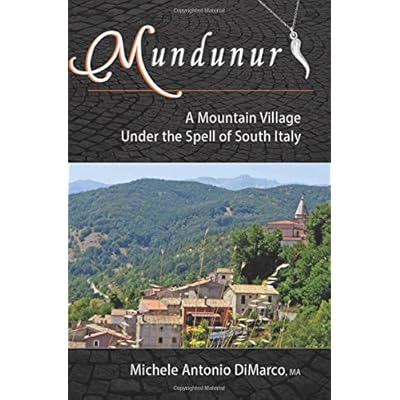Book Description Review . . . an evocative, informative, and engaging study. Balancing neatly between the story and features of Montenero and the broader trends of Italian history and contemporary life, Di Marco illustrates the past, present, and future of the village and its people. By sharing family memories and oral interviews, complemented by strong research, the author opens a fascinating window into patterns of rural and local life, always keeping in mind their human elements. Dr. Tommaso Astarita – Georgetown University –Back cover reader comment. . . presents the fascinating history of a small village . . . in reality, the book is an interesting starting point for learning about the centuries of Molise history and its interrelationship with South Italy. Its richness in detail distinguishes this substantial work of Michele Di Marco. Dr. Valeria Cocozza – University of Molise –Back cover reader comment. . . avoids the overwrought and saccharine nostalgia that occasionally mar books on the Italian-American experience. . . . even those not from Molise, or even from Italy, should still find the book enjoyable and informative. Dr. Ray LaVerghetta – President, The Abruzzo and Molise Heritage Society of Washington, D.C. –Back cover comment Read more About the Author Michaele A. Di Marco, M.A., studied Italian at the University for Foreigners in Perugia, and received an M.A. degree from Seton Hall University. He founded Via Media Publishing in 1991, publishing a quarterly journal and books. He has published nearly one-hundred articles in a variety of periodicals. Read more Customers Review: This well researched book lays out the history of this mountain village with insightful detail. From the very first peoples on the Italian peninsula through its incorporation into the Roman Republic, through rebellions, invasions, crusades, and so much more. Its chocked full of photographs depicting the architecture, art, and people. There are informative explanations plus personal insights. A book worthy of recommendation to anyone with an interest in foreign cultures, especially this part of Italy.
A wonderfully detailed account of my father’s hometown. “Mundunur” is both a sentimental labor of love directed to those of us that call that place “home,” AND an exhaustively researched piece of literature that anyone with small-town roots or an interest in history would enjoy.
This is a must read for those interested in Italian culture, the Southern Region (Molise) and their own Italian roots. A concise profile of a mountain village in the most sparsely populated region of Italy, Mundunur presents a village and its people throughout its history, that is both personal and unique, while reflecting the universal nature of the life in many villages in Southern Italy and beyond. It is enriched with personal, first hand observations, solid research and analysis of village character, history, geography, daily life and more. Many fine photos and images enhance the narrative.
Thoroughly researched. My parents confirmed many of the facts and were surprised to learn many new things about where they grew up. It was a delight to have them point out relatives in the photos, allowing me to see some faces for the first time. Even if one doesn’t have a connection to Montenero, it’s a fascinating read about history and culture in a secluded mountain village in southern Italy.
I truly enjoyed learning the history of this village where my paternal grandparents and many extended family members were born and raised. Growing up I heard so much about the “Montes” and have always wanted to learn about the region and now I have that opportunity.
I very much enjoyed reading this book about my Grandmother’s home town! The story telling is engaging and fun! A great book for anyone interested in history and culture and how it all comes together to form our families. Molto bene Michele DiMarco!
Spectacular history of southern Italy and my ancestor’s little-known mountain village. Di Marco’s unique personal investigative efforts are significant from a historical perspective: analyzing the roots of the culture and the persistence through devastating events, and his analysis of the industrious and pioneering character of the Montenero and southern Italian residents. This book also serves as an ominous warning, that the current generation’s progressive apathy is representative of the world at large. Honoring and continuing the ancestral strength of your roots, family and integrity is empowering and crucial, while apathy fosters expunging of what was and what could be. |

